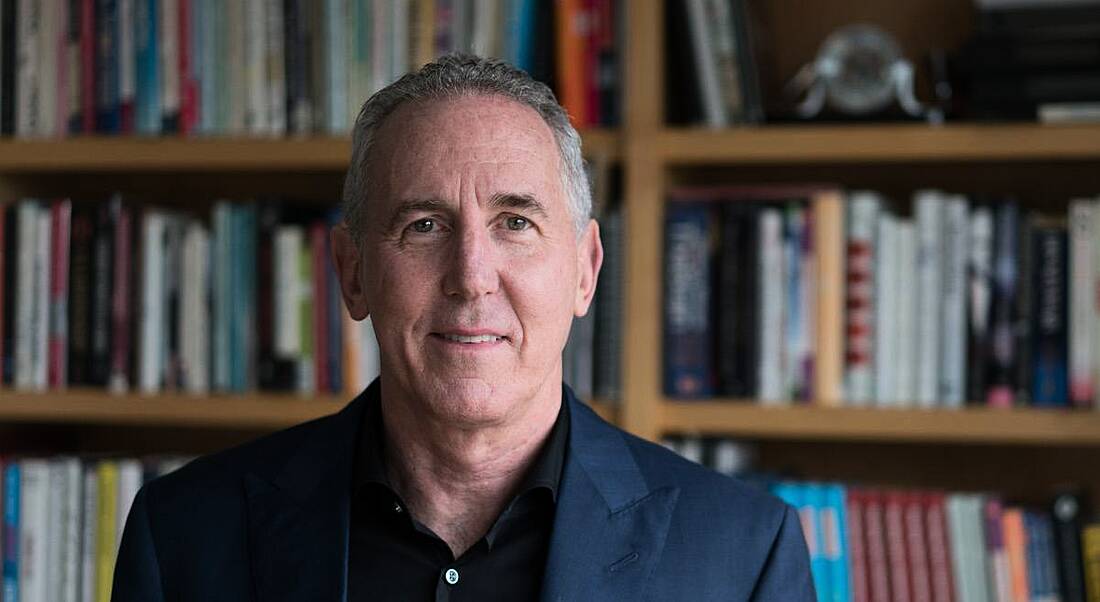Sometimes when we’re at work wishing we had more time to get things done, perhaps what we should be looking for is more energy.
When we’re trying to get through a lot of work, we often wish we had more time. The problem is that time is a finite resource. It’s not technically possible to make more time out of thin air.
At the Workhuman conference in Nashville this year, I sat down with Tony Schwartz, CEO and founder of The Energy Project. Schwartz began his career as a journalist before starting up The Energy Project, a global consultancy helping businesses and individuals manage their energy and ensure sustainable high performance.
Schwartz said that when people try to expand the amount of hours in their day in order to get more done, they end up pushing themselves too far. “The ability to show up as a high performer working past a certain number of hours is actually not enhanced, it’s compromised,” he said.
“It makes sense to be prioritised and focused and absorbed in all the sort of time management components of your life, but then the reality is there’s more demand than there is time – and that’s where energy comes in.”
Unlike time, energy can be expanded and renewed. When energy is properly managed, employees can get more done with less time. “Energy is a resource that needs to be added to the mix in a demanding world.”
Naturally, I asked Schwartz for his tips on how employees can go about managing their energy. “I hate tips,” he said. “You can give people a list of things to do and if they’re not things they’re already doing … the odds that they’ll actually begin to do them are low, and they get lower and lower from the moment that you inspired them. As time goes on, in the face of all the pressures that they’re facing, they just default back to what they were already doing the vast majority of the time.”
However, that doesn’t mean it’s not possible to learn how to manage your energy. While wanting a list of tips or ‘how-tos’ might help build the intention to change behaviours, Schwartz said one of the keys is to build rituals, “a highly specific behaviour that you do over and over again at the same time, ideally until it becomes automatic”.
He said once a ritual is in place, you don’t think about it any more, such as brushing your teeth every morning. In work, these rituals might centre around energy renewal – for example, building in the ritual of taking a break every 90 minutes. “When you build in regular refuelling every 90 minutes, you’re going to get more done when you are working and therefore you won’t have ‘wasted your time’.”
Feeling overwhelmed?
Schwartz also said it’s important to know the difference between your energy levels. Know what it looks like when you’re in a state of calmness and composure versus when you’re feeling overwhelmed, or what he calls ‘survival mode’.
“For example, when you feel a shift in your body, when your face gets red, when you feel tension in your muscles, when you have a negative feeling in your chest, how do you start to notice the feelings that tell you you’re not OK?”
According to Schwartz, these feelings are triggers; signs that your energy might be low, that you’re feeling overwhelmed and that your body is going into ‘survival mode’.
“The golden rule for triggers is, whenever you feel compelled to do, don’t,” said Schwartz. “When you feel compulsion, it’s a powerful way to know that you’re not in a good place because what compulsion suggests is that you’re behaving reactively or impulsively as opposed to deliberately and intentionally.”
In the heat of the moment, we’ve all felt a compulsion to snap at someone, send a hasty email or try fix a mistake so fast that no one will see it. However, the panic that comes with these impulsive feelings must be calmed. “This is a skill that has to be developed over time but when you feel most intently that you want to do something and you can’t hold yourself back … that’s when you want to say ‘no’.”
Once you’ve held yourself back from your compulsive behaviour, he said a shift in physiology will help calm you down. This can be achieved by the simple mechanism of controlled breathing. “That’s an emergency measure that we believe can be very effective for people,” he said. “The trick is the capacity to do it when the stakes are high because that compulsion is very strong.”
While not an instant fix, creating rituals and resisting your compulsions are helpful tools that can be built upon and enhanced to help you better manage your energy.
The importance of self-observation
Schwartz said the next step is self-observation. This is the ability to watch and monitor your experiences as opposed to allowing yourself to either react compulsively or automatically.
“At least 95pc of our behaviours in a given day happen either compulsively or automatically,” he said. “So, self-observation is the most powerful tool I know of, taking back control over how you show up in the world.”
During his breakout session at Workhuman, Schwartz asked the room to list their three best and three worst traits, and think about how different those two people are even though they are in fact part of the same person.
“Most people don’t make a distinction between who they are at their best and worst,” he said. “[But] now you have moved into self-observation mode and you’re in a position to say, ‘Wait a minute, I’m feeling irritable, frustrated and compulsive.’ To name an emotion is to give yourself the potential to influence what you do around that emotions.”
Once you’ve gotten to this point in self-observation, you can decide what to do with those emotions instead of instantly reacting. “Sometimes you just have to sit with it as opposed to inflict it on others.”




